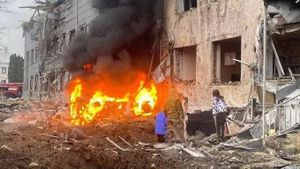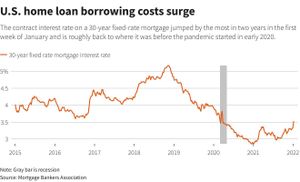Wildfires have wreaked havoc across Southern California, particularly affecting affluent neighborhoods such as Pacific Palisades. The recent fires not only resulted in substantial property damage but also revealed the alarming state of the insurance market, which has been unable to accommodate increasing risks posed by extreme weather events.
Over the past months, insurance companies have responded to the wildfire crisis by dropping policies and raising renewal rates, making it increasingly difficult for homeowners to obtain reliable coverage. According to CBS News, approximately 1,600 home insurance policies were canceled by State Farm for residents of Pacific Palisades as early as July 2024, before the fires burned through the community. This decision was part of broader trends; over 2,000 policies were similarly terminated for customers across neighboring areas like Brentwood and Calabasas.
These stark developments can be traced to the intensified climate crisis, which experts warn is creating conditions ripe for wildfires. Alexander de Sherbinin, a geographer specializing in climate change impacts at Columbia University, noted, "Not everybody is necessarily going to go far. But we could see significant movements, probably away from the coasts and toward the north." Indeed, as natural disasters become more frequent, the ramifications on homeowners’ insurance and housing markets are becoming increasingly severe.
The situation has become dire for some households. Many homeowners are now facing exorbitant costs for their current insurance plans or seeking out options from insurers of last resort, which are often unaffordable. CBS News reported, "These conditions are getting worse because of a warming climate, making wildfires and hurricanes stronger, longer, and more likely." Consequently, individuals are left unprotected, exacerbated by fears over insufficient financial support should disaster strike.
Worryingly, these insurance crises mirror events from the past, sparking fears of potential economic fallout. A Senate report emphasized the risk posed to property values, stating collapsing values across the country could lead to another financial crisis akin to the 2008 economic downturn.
The wildfires themselves have underscored this shifting reality. January's wildfires are predicted to be the costliest in U.S. history, primarily affecting high-value properties. For example, real estate data indicated the average property value within Pacific Palisades is around $3.1 million. This staggering amount highlights the stakes for homeowners facing both potential loss and rising insurance rates.
The immediate effects of these destructive fires are evident; thousands of homes stood vulnerable as flames approached, damaging landscapes and communities. Yet the longer-term consequences on resident stability and local economies cannot be overlooked. What can be done to mitigate these overwhelming issues?
There is a growing consensus on the need for government intervention. Protecting homeowners and maintaining affordable insurance options is considered imperative as wildfires and other disasters become more prevalent. Various stakeholders are calling for local and state governments to step up and push insurance providers to offer necessary coverage without extorting customers.
Beyond policy measures, there are also steps individuals can take to reduce climate impact collectively. Experts suggest opting for greener transport solutions, like more public transportation or cycling, as small changes can cumulatively lead to significant reductions in carbon emissions. For example, studies indicate if just 10% of the population replaced one car trip with biking, it could reduce harmful emissions by up to 10%.
Likewise, dietary changes can play a role. Simple commitments, such as swapping out one meat-based meal for plant-based substitutions each week, can drastically lower greenhouse gas emissions, equal to taking one car off the road for approximately 320 miles.
The intersection of climate change and insurance indicates clear turbulence for homeowners, marking this relationship as one requiring urgent attention. The devastating events of January's wildfires serve as not only stark reminders of the reality many face but also call on all of us to champion sustainable practices and advocate for effective policies.
With mounting evidence tying the rise of extreme weather events to climate change, the pressing need for adaptive strategies becomes abundantly clear. Each person's actions, when combined, have the power to reshape communities and potentially shield homes from future disasters.



